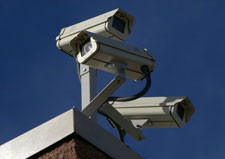 Owners often question whether they can enforce their HOA’s CC&Rs on neighboring owners in the event that their HOA is either unwilling or unable to do so. Owners also question whether they can recover any attorney’s fees that they expend in bringing such an enforcement action.
Owners often question whether they can enforce their HOA’s CC&Rs on neighboring owners in the event that their HOA is either unwilling or unable to do so. Owners also question whether they can recover any attorney’s fees that they expend in bringing such an enforcement action.
The recent, unpublished opinion in Klein v. Nyamthi (2012) illustrates that owners may bring such enforcement actions in certain circumstances and may also recover their attorney’s fees should they prevail.
In Klein, the Defendant was violating the HOA’s CC&Rs by not fixing a landscape grading problem which ultimately caused his neighbor’s (the Plaintiff’s) home to sustain flooding damage. The Defendant violated the maintenance and nuisance provisions of the HOA’s CC&Rs by not “plant[ing] and water[ing] the slopes of [his] property, or otherwise maintain[ing] it in such a manner” as to prevent erosion and potential flooding. In recognizing that CC&Rs essentially constitute a contract between each of the owners and the HOA, the court highlighted the fact that CC&Rs are “enforceable by the owner of any lot in the development” pursuant to Civil Code Section 1354(a). Moreover, because the Plaintiff prevailed “in an action to enforce [the] CC&Rs,” in accordance with Civil Code Section 1354(c), the court ruled that the Plaintiff was “entitled to recover [attorney’s fees] as a matter of right.”
 |
The Civil Code does provide owners the general right to enforce their Association’s CC&Rs against neighboring owners and the Association itself. However, some CC&Rs may contain provisions which limit or otherwise affect this right in certain situations. As a general rule, it is best for an owner to defer to the enforcement efforts of her Association and its Board of Directors when violations of the CC&Rs exist. Exercising “self-help” should be a measure of last resort in the rare instances where the Association is either unable or unwilling to comply with its enforcement obligations.
|
 In November of last year we discussed the introduction of Senate Bill 209 (SB 209), in our post entitled, “Electric Vehicle Charging Stations in Your Community?” SB 209 as singed into law could be interpreted to broadly require that homeowners associations (Associations) allow electric vehicle (EV) charging stations on common areas–an apparent violation of existing California laws. Our blog post addressed SB 209’s various defects and deficiencies, and touched on a report by CAI’s Legislative Action Committee (“CLAC”) noting the need for an amendment to the law.
In November of last year we discussed the introduction of Senate Bill 209 (SB 209), in our post entitled, “Electric Vehicle Charging Stations in Your Community?” SB 209 as singed into law could be interpreted to broadly require that homeowners associations (Associations) allow electric vehicle (EV) charging stations on common areas–an apparent violation of existing California laws. Our blog post addressed SB 209’s various defects and deficiencies, and touched on a report by CAI’s Legislative Action Committee (“CLAC”) noting the need for an amendment to the law. HOA Lawyer Blog
HOA Lawyer Blog


 We are proud to announce that the Versailles Owners Association has selected Tinnelly Law Group as its corporate counsel.
We are proud to announce that the Versailles Owners Association has selected Tinnelly Law Group as its corporate counsel. One of the primary purposes of a Homeowners Association (HOA) is to manage and maintain the common areas within a development. Although the specific responsibilities assigned to a HOA may vary greatly depending on the terms of their governing documents, the HOA generally has a duty to act diligently and in good faith. Often times, these responsibilities include the repair and maintenance of security and safety equipment, including street lights,
One of the primary purposes of a Homeowners Association (HOA) is to manage and maintain the common areas within a development. Although the specific responsibilities assigned to a HOA may vary greatly depending on the terms of their governing documents, the HOA generally has a duty to act diligently and in good faith. Often times, these responsibilities include the repair and maintenance of security and safety equipment, including street lights,  TLG Attorney
TLG Attorney 

 *New Resource
*New Resource Owners often question whether they can enforce their HOA’s CC&Rs on neighboring owners in the event that their HOA is either unwilling or unable to do so. Owners also question whether they can recover any attorney’s fees that they expend in bringing such an enforcement action.
Owners often question whether they can enforce their HOA’s CC&Rs on neighboring owners in the event that their HOA is either unwilling or unable to do so. Owners also question whether they can recover any attorney’s fees that they expend in bringing such an enforcement action.